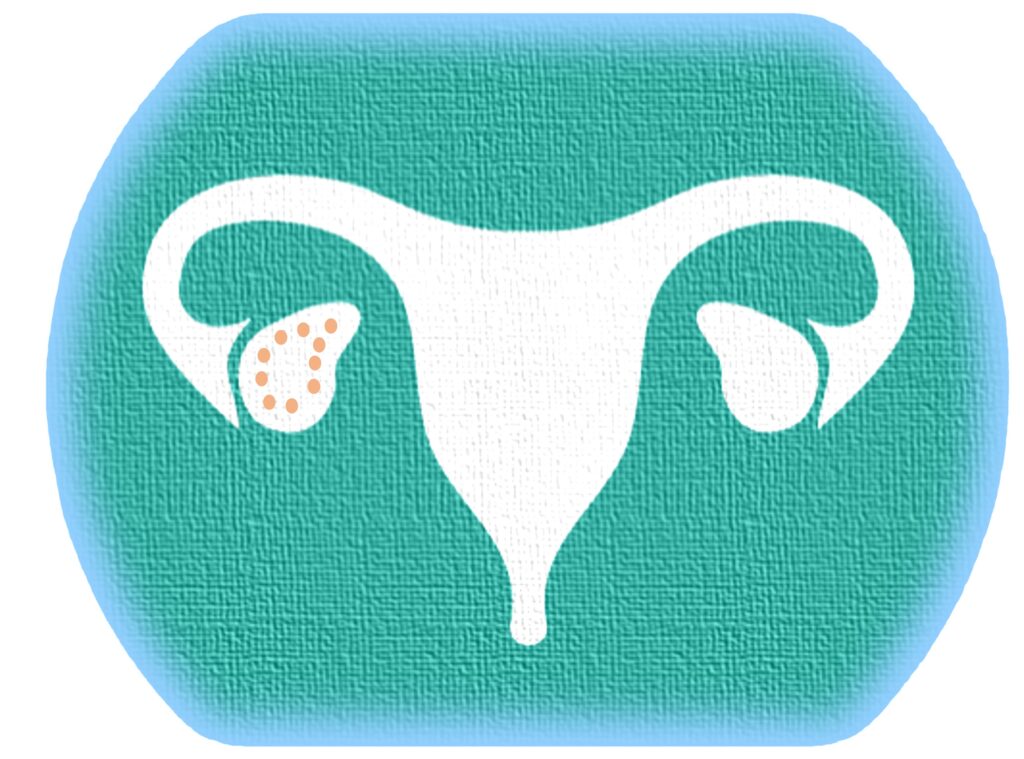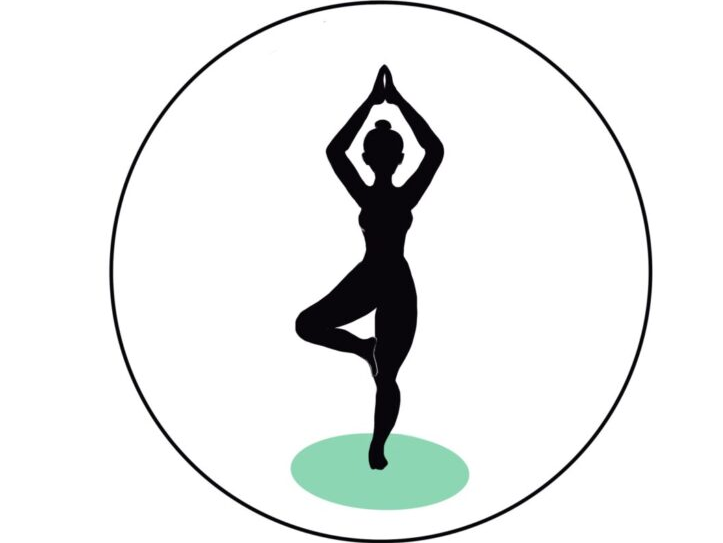Polycystic Ovarian Syndrome (PCOS) is a metabolic disorder. It is often discovered during the first period or after stopping the pill.

How does PCOS manifest itself?
PCOS is a hormonal disorder that can occur in about 10% of women. Often the testosterone level is elevated (too many male hormones). Therefore, many women report various symptoms of varying severity. e.g. :
- impure skin (acne)
- hair loss
- Infertility
- weight gain
- Depression
- Type II diabetes (insulin resistance)
However, not all symptoms occur at the same time. Each woman struggles with a different combination of symptoms.
What is testosterone ?
Testosterone is a sex hormone also called androgen. It occurs in both sexes in different concentrations and modes of action. Testosterone is produced in the female body in the ovaries and adrenal cortex.
Testosterone and its mode of action in the female cycle
In the first half of the cycle, testosterone rises slowly and reaches its peak around ovulation. In the second half of the cycle, testosterone levels drop again somewhat and increase again with menstruation.
Testosterone is converted in the body to dihydrotestosterone, also known as DHT, which controls sebum production. Conversely, it means that too much testosterone increases sebum production and clogs our skin glands. Clogged skin glands are the perfect breeding ground for any bacteria and fungi. This leads to inflammations, i.e. pimples. The clogged sebaceous glands also build up pressure on the hair roots and thus hair loss can occur.
In addition, the increased testosterone level influences the increased insulin secretion, which leads to insulin resistance and diabetes can occur as a late consequence. The risk of developing breast and uterine cancer is also increased.
PCOS treatment approaches:
Many women are diagnosed with PCOS, but unfortunately there is no cure yet.
1) Pharmacological PCO-therapy (conventional medicine)
- The doctor often resorts to medications that cause the regulation of the menstrual cycle with hormonal contraceptives (birth control pills). The contraceptive pill usually contains estrogens and progestins, which have the task of balancing the androgen excess. Medications can have side effects, such as increased risk of thrombosis as well as breast and cervical cancer.
2) Endocrinological PCO-therapy
- The endocrinologist also likes to prescribe metformin in case of insulin resistance, so that the cells can respond better to the insulin, in order to adjust the insulin production to the blood sugar increase. Metformin is therefore a good way to lose weight.
IMPORTANT: Pharmacological therapy is purely a symptom treatment, as it suppresses the symptoms.
3) Alternative natural options to treat PCO symptoms (Holistic Therapy).
Many women deal with the issue of how can I lower testosterone levels naturally as well as sustainably and bring them back into balance?
The answer is somewhat more complex. Most patients are dissatisfied with pharmaceutical therapies and therefore want an effective and safe alternative to hormonal contraceptives and fertility drugs. Furthermore, they want to manage their symptoms.
Yogic diet to regulate blood sugar
Blood sugar spikes when we eat a lot of refined sugar and white flour. The body releases insulin, another hormone to lower blood sugar. It is like a vicious circle, when we eat a lot of sugar, the body produces a lot of insulin and the mean thing is that the insulin is stored as fats in the cells and additionally sends an information to the adrenal cortex that androgens have to be produced. This means that the more insulin is produced the more androgens are produced. Knowing this, dietary changes have been proven to be the best and most effective treatment option for PCOS. Weight loss of 5% to 10% can improve the menstrual cycle. This lowers testosterone levels and increases fertility. A change in diet works wonders! Attention: You have to imagine your body has a carbohydrate allergy! Low Carb is announced!!!! + Dairy-free diet.
Foods that do not promote weight loss are potatoes, chips, rice, cornflakes, juices, sugared drinks, popcorn, chocolate, desserts, cakes and ice cream.
Healthy foods include cinnamon, green vegetables, matcha, green tea, beans, lentils, pre-grain cereals, fish and berries.
- Omega 3 fatty acids: Sesame as well as flaxseed can lower testosterone levels in the long term, as the plant compounds (lignans) are very similar to the structure of estrogens, causing estrogen levels to rise slightly.
- Keep zinc balance in mind: Foods containing zinc include pumpkin seeds, lentils and oatmeal.
- Food supplement: Inositol
Hormone Yoga
In addition, yoga exercises promote weight loss. The good thing is, anyone can participate in yoga practice as participants do not need to have a certain level of fitness or flexibility. The therapeutic approach of yoga leads to decreased production of cortisol, the stress hormone. In addition, yoga enhances your mindfulness, awareness of posture and breathing. Studies on the effects of yoga on women with PCOS have shown improved insulin sensitivity.
Testimonials from doctors, fertility clinics:
- For PCOS, I would recommend hormone therapy or artificial insemination.
- Diabetes is in your genes. Therefore, it is difficult for you to fight it.
- You absolutely have to take the pill or metformin, otherwise you will get health problems.
If you want to red more about how i got pregnant despite PCOS follow the link.
